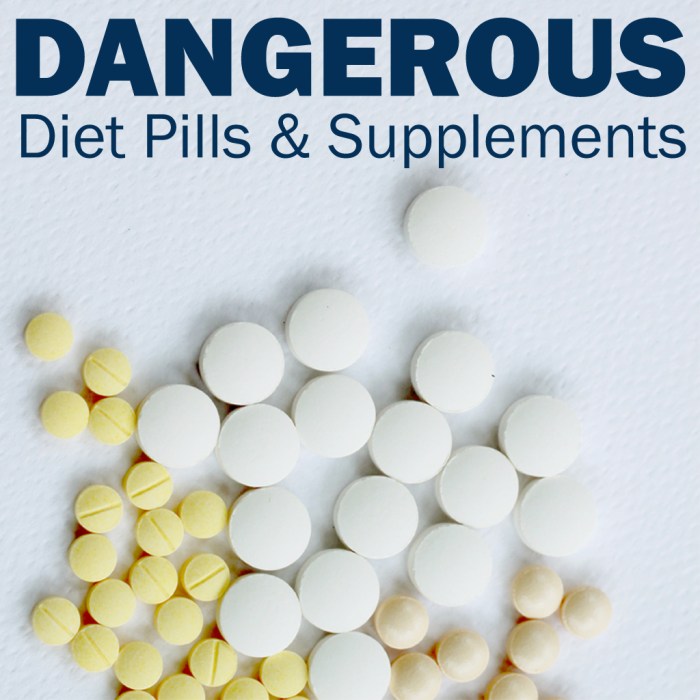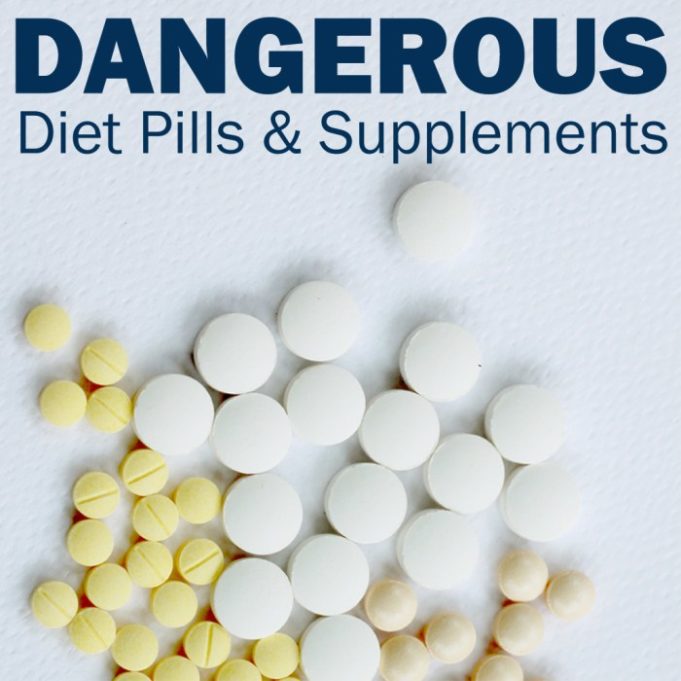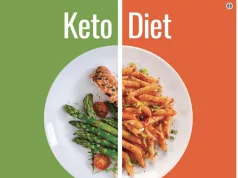Diet pills dangerous: the phrase evokes images of quick fixes and easy weight loss, but the reality is often far more complex. While many people turn to diet pills in search of a shortcut to a slimmer figure, the potential risks associated with these products are often overlooked. From heart problems and digestive issues to mental health concerns, the dangers of diet pills can outweigh the perceived benefits.
This exploration delves into the world of diet pills, examining their ingredients, mechanisms, and regulatory landscape. We’ll uncover the scientific evidence behind their effectiveness, explore common misconceptions, and discuss the importance of considering individual health conditions before embarking on a diet pill journey. Ultimately, we’ll emphasize the value of sustainable weight management strategies that prioritize health and well-being.
The Risks of Diet Pills: Diet Pills Dangerous
Diet pills, also known as weight-loss medications, are a popular option for people looking to shed pounds quickly. However, these pills often come with serious health risks that can outweigh any potential benefits. While some individuals may experience short-term weight loss, the long-term consequences can be severe, affecting various bodily systems.
Common Side Effects of Diet Pills
The use of diet pills can lead to a range of side effects, some of which can be life-threatening.
- Heart Problems: Many diet pills can increase heart rate and blood pressure, putting individuals at risk for heart attacks, strokes, and other cardiovascular issues. Some pills contain stimulants like ephedrine, which can cause dangerous heart arrhythmias.
- Digestive Issues: Diet pills can irritate the stomach and intestines, leading to nausea, vomiting, diarrhea, and constipation. Some pills can also interfere with nutrient absorption, leading to deficiencies.
- Mental Health Concerns: Certain diet pills can cause anxiety, insomnia, and mood swings. Some may even lead to depression and suicidal thoughts.
Examples of Diet Pills and Their Known Dangers
Here are some examples of specific diet pills and their known dangers:
- Phen-Fen: This combination of fenfluramine and phentermine was popular in the 1990s but was withdrawn from the market due to its association with heart valve problems.
- Sibutramine (Meridia): This drug was also removed from the market due to its increased risk of heart attacks and strokes.
- Orlistat (Xenical, Alli): This drug works by blocking the absorption of fat. While generally considered safe, it can cause gastrointestinal side effects such as oily stools and fecal incontinence.
Ingredients and Mechanisms

Diet pills often contain a combination of ingredients, each with a specific mechanism of action aimed at promoting weight loss. Understanding these ingredients and their potential effects is crucial for evaluating the safety and efficacy of these products.
Common Ingredients, Diet pills dangerous
Diet pills commonly contain ingredients that target various aspects of weight management, including appetite suppression, increased metabolism, and fat burning.
- Stimulants: Stimulants like caffeine, ephedrine, and synephrine are often included to increase energy expenditure and suppress appetite. Caffeine is a widely consumed stimulant, while ephedrine and synephrine are more potent and have been associated with adverse effects.
- Appetite suppressants: Ingredients like phentermine, orlistat, and sibutramine work by affecting neurotransmitters in the brain that regulate hunger and satiety. Phentermine is a controlled substance, while orlistat inhibits fat absorption in the gut.
- Metabolic boosters: Ingredients like green tea extract, guarana, and yerba mate are believed to increase metabolism by boosting thermogenesis, the process of heat production in the body. However, the effectiveness of these ingredients for weight loss is limited.
- Fat burners: Ingredients like conjugated linoleic acid (CLA), chromium picolinate, and carnitine are often marketed as fat burners, but their efficacy is not well-established. CLA is a fatty acid found in dairy products, while chromium picolinate is a mineral that may play a role in glucose metabolism. Carnitine is an amino acid involved in fat metabolism.
Scientific Evidence
The scientific evidence supporting the effectiveness of many ingredients in diet pills is mixed and often limited.
- Stimulants: Caffeine can modestly increase metabolism and suppress appetite, but its effects on weight loss are often short-lived. Ephedrine and synephrine have been linked to increased heart rate and blood pressure, and their use is generally discouraged.
- Appetite suppressants: Phentermine and orlistat have been shown to promote modest weight loss in short-term studies, but their long-term efficacy and safety are uncertain. Sibutramine was withdrawn from the market due to concerns about cardiovascular risks.
- Metabolic boosters: The evidence for the effectiveness of green tea extract, guarana, and yerba mate for weight loss is weak. While these ingredients may have some metabolic effects, their impact on weight management is minimal.
- Fat burners: The effectiveness of CLA, chromium picolinate, and carnitine for fat burning is not well-supported by scientific evidence. While these ingredients may have some metabolic effects, their impact on weight loss is negligible.
Interactions with Medications
Diet pill ingredients can interact with other medications, potentially leading to adverse effects. It’s crucial to consult with a healthcare professional before taking diet pills, especially if you are taking other medications.
- Stimulants: Stimulants like caffeine can interact with medications for anxiety, depression, and heart conditions. They can also increase the risk of insomnia and tremors.
- Appetite suppressants: Appetite suppressants can interact with medications for high blood pressure, diabetes, and heart conditions. They can also increase the risk of constipation and dry mouth.
- Metabolic boosters: Metabolic boosters can interact with medications for thyroid disorders and blood thinners. They can also increase the risk of headaches and dizziness.
- Fat burners: Fat burners can interact with medications for diabetes, heart conditions, and blood thinners. They can also increase the risk of digestive problems and liver damage.
Outcome Summary
While the allure of a quick fix might be tempting, the truth is that healthy weight management requires a holistic approach. Diet pills, with their potential risks and questionable effectiveness, should be approached with caution. Instead of relying on shortcuts, prioritize evidence-based strategies like a balanced diet, regular exercise, and professional guidance. Remember, true health and well-being are built on sustainable choices, not temporary fixes.
FAQ Insights
Are all diet pills dangerous?
Not all diet pills are inherently dangerous, but many carry potential risks. The severity of these risks varies depending on the specific ingredients, dosage, and individual health factors. It’s crucial to research the potential side effects and consult with a healthcare professional before using any diet pill.
What are some common side effects of diet pills?
Common side effects include headaches, nausea, dizziness, insomnia, anxiety, increased heart rate, and digestive issues. Some diet pills can also interact with other medications, leading to potentially serious complications.
Are diet pills effective for weight loss?
The effectiveness of diet pills for weight loss is often overstated. While some individuals may experience short-term weight loss, the results are often temporary and unsustainable. Moreover, the risks associated with diet pills often outweigh any potential benefits.
What are some healthy alternatives to diet pills?
Healthy weight management strategies include a balanced diet rich in fruits, vegetables, and whole grains, regular exercise, and stress management techniques. Consulting with a registered dietitian or a healthcare professional can provide personalized advice and support.
Diet pills can be risky, with potential side effects and even addiction. A healthier approach is to focus on your overall diet, which can be improved by adding more fiber. Check out this resource for some great ways to add fiber to your diet , which can help you feel fuller, regulate your digestion, and ultimately lead to better overall health.
Remember, sustainable changes are key, and a balanced diet is far more effective than relying on quick fixes.
While diet pills can be tempting for quick weight loss, it’s important to remember that they can come with serious side effects. A healthier approach is to focus on making gradual lifestyle changes, like incorporating more fruits, vegetables, and whole grains into your diet.
If you’re concerned about high cholesterol, there are proven ways to lower it through diet, like following a heart-healthy eating plan, which you can learn more about by reading how to reduce cholesterol with diet. Ultimately, sustainable weight management and healthy cholesterol levels are best achieved through long-term changes, not quick fixes.
While diet pills might seem like a quick fix, they often come with dangerous side effects. Instead of relying on shortcuts, it’s crucial to focus on long-term healthy habits. The best approach is to adopt a balanced diet that nourishes your body and supports overall well-being.
To learn more about what constitutes a healthy diet, check out this resource on what is the best diet for overall health. Remember, sustainable changes are always better than risky quick fixes, especially when it comes to your health.
























